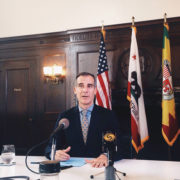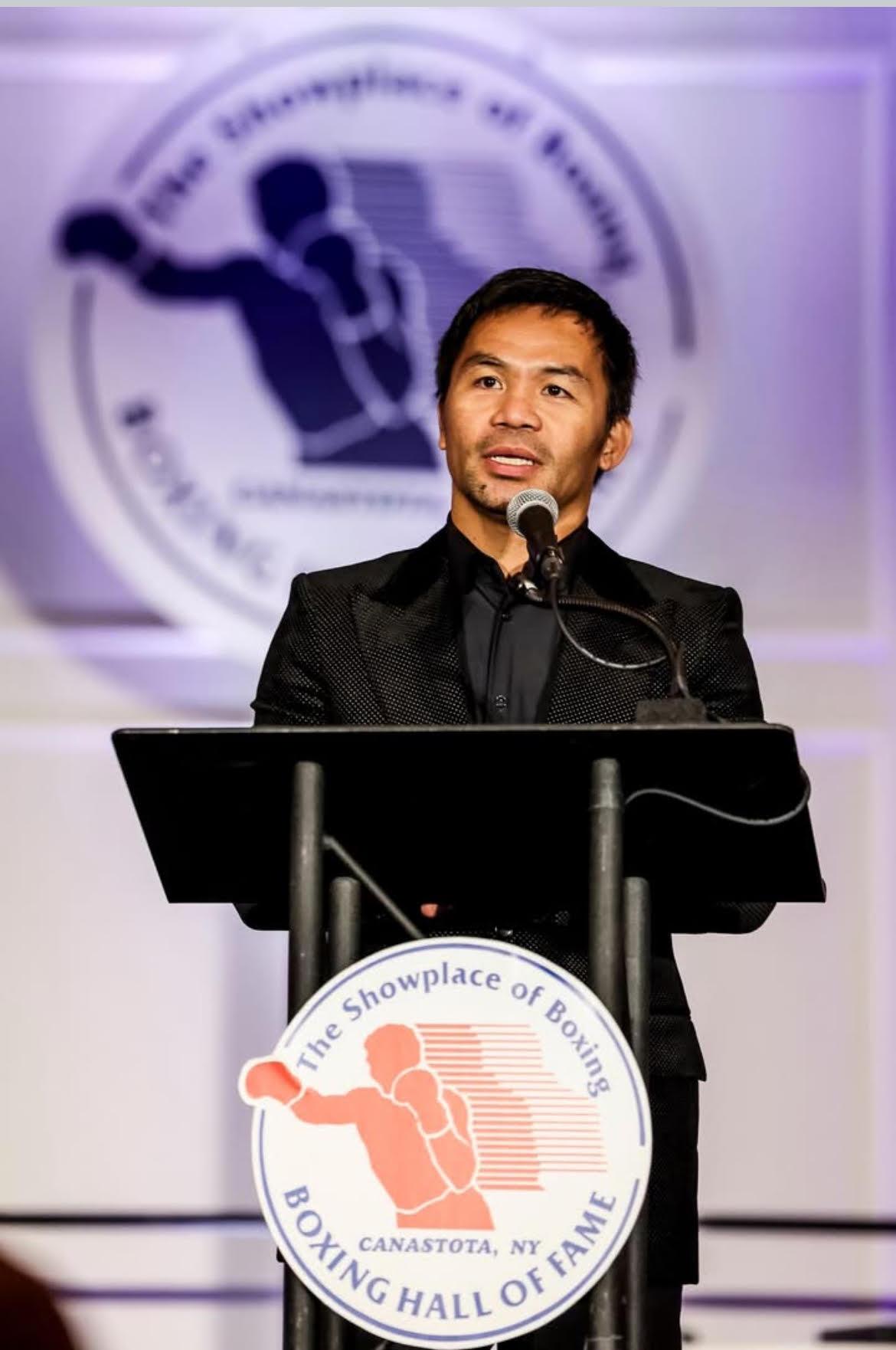The LA mayor shares his thoughts on maritime dispute in the West Philippine Sea
Amid rumors of a 2020 presidential candidacy, Los Angeles Mayor Eric Garcetti honed his expertise in foreign affairs by embarking on a 10-day tour of Asia to strengthen relations with key cities across the Pacific Rim.
Last month, Garcetti and a delegation team visited and met with government officials and business leaders from energy and manufacturing companies from Tokyo, Seoul, Hanoi, Hong Kong, Ho Chi Minh City from July 23 to Aug. 1 that focused on trade, sustainability and boosting tourism in LA, which will welcome a flurry of international guests for the 2028 Olympics.
“We are the city with the most Asian and Pacific Islander (AAPI) citizens and residents in the country, places No. 1 for Japan, Korea, China and Vietnam in terms of visits and student investments and trade,” Garcetti said at a press conference at City Hall on Thursday, Aug. 9, adding that he wanted to let the people of Asia know that LA is “very much pro-trade [and] pro-solving our challenges together.”
Of his Asian trade mission, Garcetti said, “it was very successful.” It comprised of 59 meetings and engagements that resulted in several “concrete” goals including discussing international expansion plans with airlines, signing memoranda of understanding with trade and commerce agencies and establishing cross-border partnerships on entertainment and technology in LA and Hong Kong.
Last year, trade relations with Japan, South Korea, Vietnam and Hong Kong strengthened in LA County, which has the largest concentration of AAPIs in the country. Tourism also skyrocketed in LA County, which welcomed 1.1 million visitors from China, 342,000 from Japan and 315,000 from South Korea, according to statistics from the mayor’s office.
Garcetti, who has in the past expressed an affinity for the Filipino-American community in LA (as a councilmember, he established the southwest portion of Echo Park as Historic Filipinotown in 2002), shared that the Philippines, along with Thailand and Taiwan, is a country he’d like to visit in a future Asia tour.
No sitting LA mayor has ever visited LA’s sister city of Makati City, but Garcetti plans on being the first.
“I think there is a great amount of investment in Filipino-run companies from the United States, especially in the manufacturing sector, and because of the trade wars brewing it could be an ideal place to expand trade and manufacturing,” Garcetti said.
When asked about his thoughts on the effect of maritime trade amid the West Philippine Sea/South China Sea dispute, he supports the tribunal’s 2016 ruling that there is no “legal basis” that supports China’s claim of “historic rights” to those waters, which have been a major trade route for the entire South East Asia region.
“I hope that our countries could work that out without too much chest-heaving, and the United States has an interest in keeping free and open trade,” Garcetti said. “Everybody can point fingers right now at each other, that [China’s] not abiding by international laws and the United States, under this administration, seems to be moving away from participation with allies, which is very dangerous.”
“I would hope that China would adhere to [the tribunal ruling] and not be threatened by what has been a constant presence of the United States there, which has not been about threatening the country, but about joining international free trade,” Garcetti added. “But it would also require a Philippines and a Filipino government that will remain committed to ensuring this is about all the countries in the region and a multilateral coalition that will ensure this isn’t just one country’s domain.”
Accompanying Garcetti on his Asia tour was a diverse group of individuals from his office, LA City councilmembers, representatives from the Port of LA and LA World Airports, tourism officials and a long list of business partners who made up the business delegation of the trade mission.
Cities like Tokyo, Hong Kong and Seoul have, in the last decade, made significant technological and environmental innovations to lower citywide pollution and congestion while many American cities have yet to advance in those respects.
Japan’s high-speed railway system, for example, was quickly adopted by the Japanese people whereas California’s long-awaited plan to establish a bullet train has yet to come to fruition largely due to political roadblocks.
“When the government owns all the land, easier to move people, so it’s a different system [in China]. I like that you can own land here, but it’s much harder to get people to move,” Garcetti remarked. “So it’s a different system, but it’s also culture. We also have to change Americans’ attitudes. The cost of a high-speed rail system is extremely expensive and it’s heavily subsidized by the government. So unless the federal government decides to make that a priority for our state, then it likely won’t happen.” (Klarize Medenilla/AJPress)






